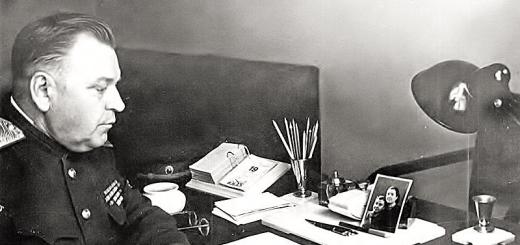Plato
And he
Plato
And he
Socrates. Now tell me this: Are you strong only in Homer, or also in Hesiod and Archilochus? And he. No, no, only in Homer... Socrates. [...] Isn't Homer talking about the same things that all the other poets are talking about? Doesn't he mostly talk about war and the intercourse of people, good and bad, simple and wise? About the gods - how do they communicate with each other and with people? About what is happening in heaven and in Hades, and about the origin of gods and heroes? And he. You are right, Socrates. Socrates. What about other poets? Aren't they talking about the same thing? And he. Yes, Socrates, but they don't talk like Homer. Socrates. What? Worse? And he. Yes, much worse. Socrates. So, if you distinguish those who speak well, then you would also distinguish those who speak worse, i.e. I could understand that they speak worse. And he. Needless to say. Socrates. So, my dear, we will not be mistaken if we say that Ion is equally strong in Homer and in other poets, since he himself admits that one and the same person can judge well everyone who speaks about the same thing; yet almost all poets sing the same thing. And he. What is the reason, Socrates, that when someone speaks of another poet, I do not delve into it and am unable to add anything significant, but simply doze off, meanwhile, as soon as someone mentions Homer, I immediately wake up, become attentive and know what to say? Socrates. It's not hard to guess, my friend. It is clear to everyone that it is not from training and knowledge that you are able to speak about Homer; if you could do this through training, you could talk about all the other poets: after all, poetic art is something integral. Your ability to speak well about Homer is, as I just said, not an art, but a divine power that moves you, like the power of that stone that Euripides called Magnesian ... This stone not only attracts iron rings, but also gives them strength do the same in turn, i.e. attract other rings, so that sometimes there is a very long chain of pieces of iron and rings hanging one after the other, and all their strength depends on that stone. So is the Muse - she herself makes some inspired, and from these stretches a chain of others possessed by divine inspiration. ... A poet is a light, winged and sacred creature; and he can create only when he becomes inspired and frenzied and there is no more reason in him; and while a person has this gift, he is not able to create and prophesy. And so the poets create and say a lot of beautiful things about various things, like you about Homer, not with the help of art, but according to divine determination. And everyone can do well only what the Muse has inspired him to do: one is dithyrambs, the other is encomia, this is hyporchemes, that is epic poems, the other is iambs; in everything else, each of them is weak. For it is not from skill that they say this, but from divine power; if, thanks to art, they could speak well about one thing, they could talk about everything else; but for this reason, God takes away their reason and makes them his servants, divine broadcasters and prophets, so that we, listening to them, know that it is not they, deprived of reason, who speak such precious words, but God himself speaks and through them gives us his voice. Is that a man of sound mind who, dressed in colorful clothes and wearing a golden wreath, weeps amidst sacrifices and festivities, without losing anything from his attire, or feels fear, being among twenty and even more than thousands of people friendly to him? After all, no one robs or offends him! And he. By Zeus, Socrates, such a man, to tell the truth, is completely out of his mind. Socrates. Do you know that you bring many of the spectators to the same state? And he. I know, and very well: every time I see from above, from a dais, how the audience is crying and looking in fright, amazed by what I am saying. After all, I have to watch them closely: if I make them cry, then I myself, receiving money, will laugh, and if I make them laugh, I myself will cry, having lost money. Socrates. Now you understand that such a spectator is the last of the links ... The middle link is you, the rhapsodist and the actor, the first is the poet himself, and God, through all of you, draws the soul of a person wherever he wants, giving strength to one through the other.
Socrates. Now tell me this: Are you strong only in Homer, or also in Hesiod and Archilochus? And he. No, no, only in Homer... Socrates. [...] Isn't Homer talking about the same things that all the other poets are talking about? Doesn't he mostly talk about war and the intercourse of people, good and bad, simple and wise? About the gods - how do they communicate with each other and with people? About what is happening in heaven and in Hades, and about the origin of gods and heroes? And he. You are right, Socrates. Socrates. What about other poets? Aren't they talking about the same thing? And he. Yes, Socrates, but they don't talk like Homer. Socrates. What? Worse? And he. Yes, much worse. Socrates. So, if you distinguish those who speak well, then you would also distinguish those who speak worse, i.e. I could understand that they speak worse. And he. Needless to say. Socrates. So, my dear, we will not be mistaken if we say that Ion is equally strong in Homer and in other poets, since he himself admits that one and the same person can judge well everyone who speaks about the same thing; yet almost all poets sing the same thing. And he. What is the reason, Socrates, that when someone speaks of another poet, I do not delve into it and am unable to add anything significant, but simply doze off, meanwhile, as soon as someone mentions Homer, I immediately wake up, become attentive and know what to say? Socrates. It's not hard to guess, my friend. It is clear to everyone that it is not from training and knowledge that you are able to speak about Homer; if you could do this through training, you could talk about all the other poets: after all, poetic art is something integral. Your ability to speak well about Homer is, as I just said, not an art, but a divine power that moves you, like the power of that stone that Euripides called Magnesian ... This stone not only attracts iron rings, but also gives them strength do the same in turn, i.e. attract other rings, so that sometimes there is a very long chain of pieces of iron and rings hanging one after the other, and all their strength depends on that stone. So is the Muse - she herself makes some inspired, and from these stretches a chain of others possessed by divine inspiration. ... A poet is a light, winged and sacred creature; and he can create only when he becomes inspired and frenzied and there is no more reason in him; and while a person has this gift, he is not able to create and prophesy. And so the poets create and say a lot of beautiful things about various things, like you about Homer, not with the help of art, but according to divine determination. And everyone can do well only what the Muse has inspired him to do: one is dithyrambs, the other is encomia, this is hyporchemes, that is epic poems, the other is iambs; in everything else, each of them is weak. For it is not from skill that they say this, but from divine power; if, thanks to art, they could speak well about one thing, they could talk about everything else; but for this reason, God takes away their reason and makes them his servants, divine broadcasters and prophets, so that we, listening to them, know that it is not they, deprived of reason, who speak such precious words, but God himself speaks and through them gives us his voice. Is that a man of sound mind who, dressed in colorful clothes and wearing a golden wreath, weeps amidst sacrifices and festivities, without losing anything from his attire, or feels fear, being among twenty and even more than thousands of people friendly to him? After all, no one robs or offends him! And he. By Zeus, Socrates, such a man, to tell the truth, is completely out of his mind. Socrates. Do you know that you bring many of the spectators to the same state? And he. I know, and very well: every time I see from above, from a dais, how the audience is crying and looking in fright, amazed by what I am saying. After all, I have to watch them closely: if I make them cry, then I myself, receiving money, will laugh, and if I make them laugh, I myself will cry, having lost money. Socrates. Now you understand that such a spectator is the last of the links ... The middle link is you, the rhapsodist and the actor, the first is the poet himself, and God, through all of you, draws the soul of a person wherever he wants, giving strength to one through the other.
Socrates, Ion
Socrates. Hi Jon! Where are you from now to us? From home, from Ephesus, or what?
And he. Not at all, Socrates, from Epidaurus, from the festivities of Asclepius.
Socrates. Do the Epidaurians hold rhapsodic competitions in honor of this god?
And he. How! Yes, and in other musical arts they compete there.
Socrates. So what if we competed? And how did you perform?
And he. We have received the first award, Socrates.
Socrates. That is good! See that we also win at the Panathenaic!
And he. So it will be, if God wills.
Socrates. Yes, Ion, I often envied your art ... It always requires you to look as beautiful as possible and be in smart attire, at the same time you need to study many excellent poets, and above all - Homer, the best and most divine of poets, and comprehend his intention, and not just memorize poetry. How can you not envy! After all, one cannot become a good rhapsodist without delving into what the poet says; the rhapsodist must become for the listeners the interpreter of the poet's intention, and it is impossible for someone who does not know what the poet is saying to cope with this. There is something to envy here!
And he. You are right, Socrates. For me, this was the most difficult thing in my art; nevertheless, I think that I explain Homer better than anyone, so that neither Metrodorus of Lampsacus, nor Stesimbrot of Thasos, nor Glavkon, nor anyone else who has ever lived has been able to express as many true thoughts about Homer as I have.
Socrates. This is good. And he; you surely won't refuse to tell them to me.
And he. Yes, Socrates, it is really worth listening to what a beautiful dress I dress Homer in: in my opinion, I am worthy to be crowned with a golden wreath by the Homeridians.
Socrates. I will certainly take the time to listen to you. Now tell me this: Are you strong only in Homer, or also in Hesiod and Archilochus?
And he. No, only in Homer; I think this is enough.
Socrates. Is there anything about which Homer and Hesiod both say the same thing?
And he. I think there is, and even a lot.
Socrates. And what Homer says about this, would you better interpret than what Hesiod says?
And he. If they say the same thing, then I, Socrates, would interpret it the same way.
Socrates. And what do they talk about differently? For example, do Homer and Hesiod say anything about divination?
And he. Of course.
Socrates. So what? Who would better interpret the similarities and differences in what both poets said about divination - you or one of the good soothsayers?
And he. Some of the soothsayers.
Socrates. And if you were a soothsayer, could you not interpret what they said differently, since you already know how to interpret what was said in the same way?
And he. Clearly so.
Socrates. How strong are you when it comes to Homer, and how are you not strong when it comes to Hesiod and other poets? Isn't Homer talking about the same things that all the other poets are talking about? Doesn't he mostly talk about the war and the relations of people, good and bad, simple and wise in something; about the gods, how they communicate with each other and with people; about what is happening in heaven and in Hades, and about the origin of gods and heroes? Is this not the subject of Homer's poetry?
And he. You are right, Socrates.
Socrates. What about other poets? Aren't they talking about the same thing?
And he. Yes, Socrates, but their work is not the same as that of Homer.
Socrates. What? Worse?
And he. Yes, much worse.
Socrates. Is Homer better?
And he. Of course it's better, I swear by Zeus.
Socrates. Isn't it true, dear Ion, when, for example, many begin to speak about number, and one speaks best of all, then after all, someone will distinguish the one who speaks well?
And he. I believe.
Socrates. Will it be the same person who distinguishes those who speak badly, or a different person?
And he. Of course, the same one.
Socrates. Is this not the one who masters the art of arithmetic?
And he. Yes.
Socrates. And if many begin to discuss what kind of food is useful, and one of them speaks better, then one person can distinguish the speaker best of all, and another person who speaks the worst, or will the same person distinguish both?
And he. Of course, one and the same; it is clear.
Socrates. Who is he? How to call it?
And he. This is a doctor.
Socrates. So, let's say in general: if many people talk about the same thing, then always the same person will distinguish who speaks well and who speaks badly; and the one who does not distinguish between a bad speaker will not, of course, distinguish a good speaker, since they are talking about the same thing.
And he. Yes it is.
Socrates. So the same person is able to judge both of them?
And he. Yes.
Socrates. You say that both Homer and other poets, including Hesiod and Archilochus, speak about the same thing, but not in the same way: Homer is good, but those are worse.
And he. Yes, and I'm right.
Socrates. But if you distinguish those who speak well, then you would also distinguish those who speak worse, that is, you could find out that they speak worse.
And he. Needless to say.
Socrates. So, my dear, we will not be mistaken if we say that Ion is equally strong in Homer and in other poets, since he himself agrees that one and the same person can be a good judge of all who speak about the same thing; but almost all poets sing the same thing.
And he. What is the reason, Socrates, that when someone speaks of another poet, I do not pay attention and cannot add anything worthwhile, but simply doze; meanwhile, as soon as someone mentions Homer, I immediately wake up, become attentive and not at all difficult, what to say?
Socrates. It's not hard to guess, my friend. It is clear to everyone that it is not through training and knowledge that you are able to speak about Homer; if you could do this through training, you could talk about all the other poets: after all, poetic art is something integral. Is not it?
And he. Yes.
Socrates. And if we take any other art as a whole, does not the same mode of consideration apply to all arts? Do you want to hear how I understand it, Ion?










